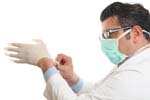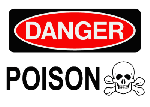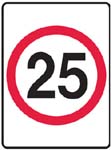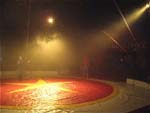 I always dreaded the thought of my GP performing a digital examination and it was the no.1 reason I never went. These days technology has saved the day with detection of many diseases through blood testing (thanks gawd) I can now say I go yearly. The Alfred Hospital has put out a Mens Health Booklet titled – Men and the Big C and it’s worth a read. Below is an extract from the booklet and we would like to say Thank You to The Alfred Hospital and Mr Peter Royce, Director, Urology for there great work on Mens health.
I always dreaded the thought of my GP performing a digital examination and it was the no.1 reason I never went. These days technology has saved the day with detection of many diseases through blood testing (thanks gawd) I can now say I go yearly. The Alfred Hospital has put out a Mens Health Booklet titled – Men and the Big C and it’s worth a read. Below is an extract from the booklet and we would like to say Thank You to The Alfred Hospital and Mr Peter Royce, Director, Urology for there great work on Mens health.
Many cancers are caused by a combination of ageing, genetics and other uncontrollable factors. However, there are some that are “man-made”, so to speak.
This means there are some factors that are in your control. You can make a real difference to your own health and help ward off illness by making some simple lifestyle changes. These include quitting smoking, moderating your alcohol intake, improving your diet, getting regular exercise, being sun-smart and making sure you have regular check-ups with your GP.
You can also educate yourself by becoming aware of the symptoms of the various forms of cancer and acting fast. Something that is always worth remembering is, the earlier you detect cancer, the better your chances of fighting it and beating it.
In the Dads Health category we will cover many types of illnesses that you can learn about, how to look out for symptoms, know when to visit a doctor and how to minimise the risk. We also hope that it is a good reminder to visit your GP for regular check ups.
PROSTATE CANCER
Prostate cancer is the second most common cancer diagnosed in men. The positive news is that if it’s found early enough, the cure rate is very good. In fact, two-thirds of men will not die from this cancer as it will not progress sufficiently enough within their lifetime to cause harm.
In Victoria, about 4,000 men are diagnosed with prostate cancer each year. The majority of these men are over 60 years of age.
The prostate is a small walnut-sized gland found only in men. It sits just below the bladder. Many men can live with prostate cancer without any symptoms or effects. In statistical terms, there is a 10 per cent chance of being diagnosed with prostate cancer by 75 years and a 1 per cent chance of dying from it by 75 years.
Having a family history of this disease puts you at increased risk. Interestingly, those of Asian descent have a much lower risk of prostate cancer.
Symptoms
Often there are no symptoms of prostate cancer. Some men report frequent urination at night while others experience difficulties starting and stopping urination. Symptoms can also include pain when passing urine, blood in the urine or semen and a feeling that the bladder can’t be fully emptied. Experiencing these symptoms does not necessarily mean you have prostate cancer – it could point to an enlarged prostate rather than cancer – but should always be investigated nonetheless.
How is it diagnosed?
There are tests that may detect prostate cancer early such as a digital rectal examination and a blood test for Prostate Specifi c Antigen (PSA).
What can I do?
• Keep your weight down and reduce your intake of saturated fats.
• Include at least five serves of vegetables in your diet each day. Research shows that antioxidants in vegetables can lower your risk of prostate cancer (especially cooked tomatoes and broccoli) as well as reducing incidence of colon cancer and heart disease. It is also thought that soy milk and tomatoes (particularly cooked with the skin on) may help prevent prostate cancer.
• Men aged over 40, with or without a family history of prostate cancer, should consider a annual prostate check.

 There is no accident that I am using a “Danger sign with skull and cross bones” as it visualises exactly the harm of poisonous words.
There is no accident that I am using a “Danger sign with skull and cross bones” as it visualises exactly the harm of poisonous words. Yep, you’re a great guy, have been a popular member of your friendship groups, have had a full table of friends over for dinner, met friends down the beach, gone to the movies with a group, maybe even taken an overseas holiday to Bali with those same friends. You think life with friends is great, well buckle up and hold on. You are about to open a new chapter of your life!
Yep, you’re a great guy, have been a popular member of your friendship groups, have had a full table of friends over for dinner, met friends down the beach, gone to the movies with a group, maybe even taken an overseas holiday to Bali with those same friends. You think life with friends is great, well buckle up and hold on. You are about to open a new chapter of your life! Leaving the family home is much harder if it is initiated by your partner. Interestingly some research conducted in 2003 showed that only 32% of all divorces were initiated by men. It makes sense that your partner is probably coping better than you. This is not to say she is having a better time. Research shows that before separation the initiator’s stress levels were higher than those of the non initiator and after separation they reduced and the non initiators increased.
Leaving the family home is much harder if it is initiated by your partner. Interestingly some research conducted in 2003 showed that only 32% of all divorces were initiated by men. It makes sense that your partner is probably coping better than you. This is not to say she is having a better time. Research shows that before separation the initiator’s stress levels were higher than those of the non initiator and after separation they reduced and the non initiators increased. There is at least one common thread amongst us, we are all trying to raise our children and be the best Dad that we can be. There’s no need to go it alone or feel that it is hopeless or you are a second rate carer compared to their mum. We know, mums have been paving the way in child care for generations and most of them doing a great job. There is absolutely no reason why we cannot be as competent in all aspects of child care as mums. I found, you just have to want to!
There is at least one common thread amongst us, we are all trying to raise our children and be the best Dad that we can be. There’s no need to go it alone or feel that it is hopeless or you are a second rate carer compared to their mum. We know, mums have been paving the way in child care for generations and most of them doing a great job. There is absolutely no reason why we cannot be as competent in all aspects of child care as mums. I found, you just have to want to! I was never allowed to participate in parenting, If I dressed my kids they would be too cold or hot, if I prepared a meal it was too spicy, when I cleaned their room it wasn’t done correctly? Maybe she was right? But that all changed when we separated.
I was never allowed to participate in parenting, If I dressed my kids they would be too cold or hot, if I prepared a meal it was too spicy, when I cleaned their room it wasn’t done correctly? Maybe she was right? But that all changed when we separated. It was a bit of a shock suddenly having to think about everything! Many of the family tasks were previously shared such as cooking, gardening, supermarket shopping, planning holidays, weekend entertainment, reading, homework, buying birthday gifts, cleaning bathroom, rooms and carpets and floor, washing, ironing, folding, purchasing clothes, bill paying, making school lunches, clothing alterations, planning calendar, household repairs, driving children to school and friends homes etc. Phew are you tired yet?
It was a bit of a shock suddenly having to think about everything! Many of the family tasks were previously shared such as cooking, gardening, supermarket shopping, planning holidays, weekend entertainment, reading, homework, buying birthday gifts, cleaning bathroom, rooms and carpets and floor, washing, ironing, folding, purchasing clothes, bill paying, making school lunches, clothing alterations, planning calendar, household repairs, driving children to school and friends homes etc. Phew are you tired yet? Reconnecting after absence I found sometimes tricky, all I wanted was to pick up my daughter and start the weekend exactly where we left off (a fortnight ago) I was excited!
Reconnecting after absence I found sometimes tricky, all I wanted was to pick up my daughter and start the weekend exactly where we left off (a fortnight ago) I was excited! Depending on your access agreement it can be difficult developing a career, I was a every second weekend dad the first time round and although it came with all the emotional losses it enabled me to devote time into my career. Now that I find myself in this situation again (accept in a 50/50 parenting agreement) and loving it, it comes with a different array of stresses, mostly work related. Sometimes I am not available to put the extra long hours in like people who are climbing the career ladder seem to put in when they have that second support at home. My foot has slipped of the clutch and I have stalled but I am out and pushing to keep the vehicle moving, but I don’t see any choice, what is the alternative, no thank you! There does seem to be a glass ceiling for people like me. So all in all I feel I am working and parenting adequately to keep all concerned happy. I am sure there are many of us in the same situation, how are you guys doing it?
Depending on your access agreement it can be difficult developing a career, I was a every second weekend dad the first time round and although it came with all the emotional losses it enabled me to devote time into my career. Now that I find myself in this situation again (accept in a 50/50 parenting agreement) and loving it, it comes with a different array of stresses, mostly work related. Sometimes I am not available to put the extra long hours in like people who are climbing the career ladder seem to put in when they have that second support at home. My foot has slipped of the clutch and I have stalled but I am out and pushing to keep the vehicle moving, but I don’t see any choice, what is the alternative, no thank you! There does seem to be a glass ceiling for people like me. So all in all I feel I am working and parenting adequately to keep all concerned happy. I am sure there are many of us in the same situation, how are you guys doing it?















Recent comments